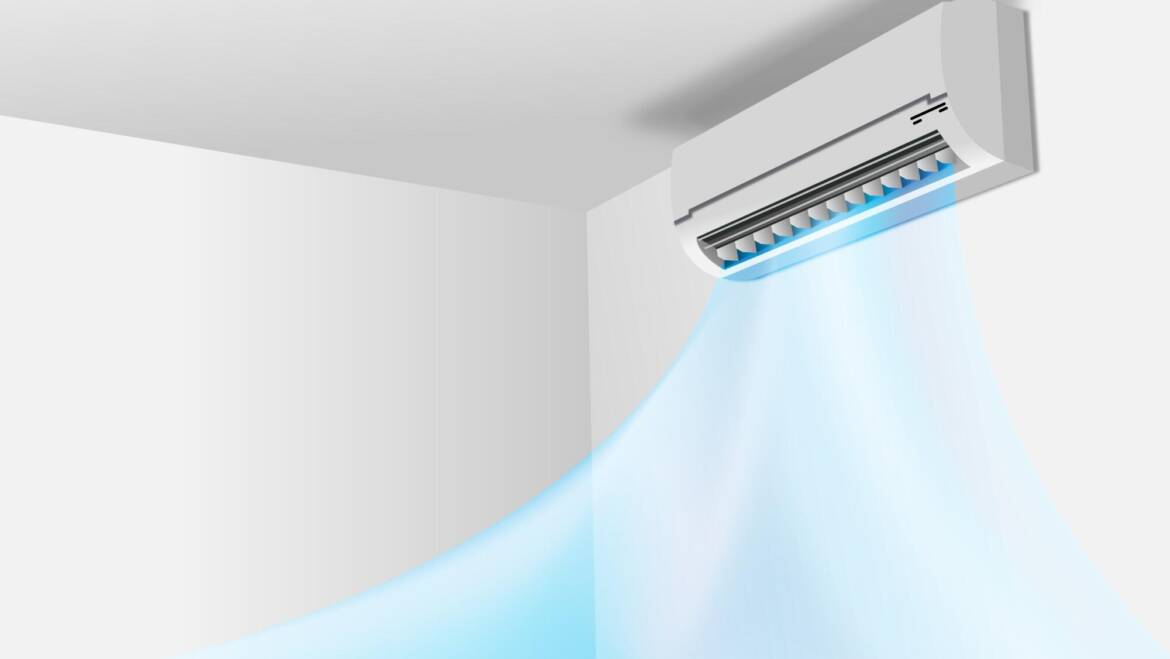How long does an AC unit last? This is a question every homeowner in Central Ohio should consider. Whether you’re in Columbus, Dublin, or Westerville, understanding the lifespan of your air conditioning system is crucial.
A well-maintained AC unit can offer years of reliable cooling, but many factors affect its performance. If you want to make smart, cost-effective decisions about your HVAC system, it’s essential to know what impacts its longevity.
In this guide, we’ll explore the average duration of AC units, the factors influencing their longevity, and maintenance tips to extend their efficiency. To learn more about how your AC system compares, keep reading for tips and signs to watch for.
How Long Does an AC Unit Last?
On average, central air conditioning systems last between 15 to 20 years. However, several factors can influence this range, including:
- Usage patterns
- Maintenance routines
- Environmental conditions
For instance, window units typically have a shorter lifespan, averaging 8 to 10 years.
How long an AC unit lasts depends on the:
- Brand
- Model
- How well it has been cared for
Systems installed by experienced professionals tend to last longer and run better. Likewise, units operating under optimal conditions, with clean filters and unobstructed airflow, usually perform better over time.
Factors Affecting AC Lifespan
Before deciding whether to repair or replace, it’s important to understand what can impact your system’s performance. Your AC unit’s lifespan isn’t only about age; it’s about how it’s treated.
Several key elements impact how long your air conditioner remains functional.
Quality of Installation
Proper installation ensures optimal performance and longevity. An incorrectly installed system may suffer from leaks, poor airflow, or short cycling.
Maintenance Frequency
Regular check-ups and on-time repairs prevent minor issues from escalating. Systems that receive annual tune-ups can last longer.
Usage Patterns
Heavy or constant usage, especially during peak summer months, strains the system and shortens its life. Daily usage habits have a direct impact on energy consumption and wear.
Environmental Conditions
Units exposed to harsh weather or salty air may experience accelerated wear. This is especially relevant in areas with fluctuating humidity or frequent storms.
System Size and Capacity
The correct size unit for your home ensures efficient operation and reduces strain. Oversized systems tend to short cycle, while undersized systems may overwork.
Understanding these AC lifespan factors helps homeowners make informed decisions when purchasing or replacing cooling systems.
Signs It’s Time for a Replacement
When systems begin to show wear, recognizing the early signs can prevent expensive repairs. Paying attention to performance issues can save you from emergency breakdowns.
Recognizing the signs that your AC unit may need replacement is essential to avoid unexpected breakdowns:
- Frequent repairs: If you’re scheduling repairs multiple times a season, replacement may be more cost-effective
- Rising energy bills: An inefficient or aging system often uses more energy to deliver the same results
- Inconsistent cooling: Uneven temperatures or reduced airflow could indicate significant internal issues
- Unusual noises: Grinding, squealing, or rattling sounds are signs of worn-out components or motor failure
- Age of the unit: If your system is more than 15 years old and shows signs of wear, a new unit might offer better performance and energy savings
These AC replacement indicators can guide homeowners in determining the right time to upgrade.
Maintenance Tips to Extend AC Efficiency
Your air conditioner works hard to keep your home cool and comfortable. Keeping it in top shape requires attention and care.
Routine maintenance is key to extending your AC system’s lifespan and keeping it energy efficient:
- Change filters: Replace or clean air filters every 1-3 months to improve indoor air quality and maintain airflow
- Inspect and clean coils: Dirty evaporator or condenser coils reduce efficiency and can cause the system to overheat
- Check thermostat settings: Ensure your thermostat is accurate and set to energy-saving temperatures when possible
- Clear debris around the unit: Remove leaves, dirt, and other debris from around the outdoor unit to ensure proper ventilation
- Schedule professional inspections: Annual service by a licensed technician can catch problems early
Implementing these cooling system maintenance practices not only improves efficiency but also boosts indoor air quality. Small, consistent steps today can prevent major system failures tomorrow.
Enhancing HVAC Longevity
While maintenance forms the foundation, it isn’t the only way to keep your system running longer. Strategic upgrades and energy-smart practices can also make a difference.
Beyond routine maintenance, there are additional steps you can take to prolong your AC unit’s service life:
- Upgrade insulation: Adequate insulation minimizes heat gain, reducing the workload on your air conditioner
- Seal air leaks: Prevent cool air from leaving by sealing all gaps around doors and windows
- Use ceiling fans: Ceiling fans help circulate cool air, allowing you to set your thermostat a few degrees higher
- Install a programmable thermostat: Smart thermostats can help you manage energy use by automatically adjusting temperatures when you’re not home
These HVAC longevity tips not only preserve your AC system but also contribute to overall home energy efficiency.
Choosing the Right Time to Replace
There is no one-size-fits-all answer to how long does an AC unit last, but understanding your system’s condition is critical. Replacing your air conditioner before it fails ensures comfort during the hottest months and avoids emergency service costs.
If your system is nearing the 15-year mark and you’ve noticed rising utility bills or inconsistent cooling, it’s wise to start planning. Modern air conditioners are more energy-efficient and come with advanced features such as variable speed motors and humidity control. Replacing an outdated system with a new high-efficiency model can lower energy costs and improve indoor comfort.
Schedule Service to Maximize Your AC Unit’s Lifespan
Knowing how long does an AC unit last and recognizing the factors that impact its performance is key to maintaining a comfortable and efficient home. Regular maintenance, attention to warning signs, and on-time replacements ensure your cooling system remains reliable.
If you’re unsure about your system’s condition, it’s time to get professional help. Aire-Flo Heating, Cooling & Generators has been serving Columbus and the Central Ohio area for over 69 years. As trusted experts, our licensed technicians specialize in air conditioning, heating, indoor air quality, and backup generator services.
Schedule a service with Aire-Flo Heating, Cooling & Generators today.
Whether you require installation, repair, or maintenance, our technicians will assist you with top-quality service at any time of the day or night. Take comfort in knowing your indoor air quality is the best it can be with MOE heating & cooling services Ontario's solution for heating, air conditioning, and ventilation that’s cooler than the rest.
Contact us to schedule a visit. Our qualified team of technicians, are always ready to help you and guide you for heating and cooling issues. Weather you want to replace an old furnace or install a brand new air conditioner, we are here to help you. Our main office is at Kitchener but we can service most of Ontario's cities
Source link


